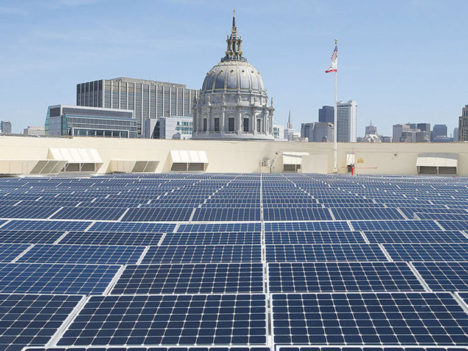San Francisco has just become the first major city to require that all new buildings must utilize solar panels.
The city’s Board of Supervisors unanimously passed the ordinance. Drafted by City Supervisor, Scott Weiner, the new law mandates that all new building projects both residential and commercial units of ten floors or less must incorporate solar panel systems. This new law builds upon a previous one which stated that 15 percent of new building rooftops must be “solar ready”.

“Activating underutilized roof space is a smart and efficient way to promote the use of solar energy and improve our environment” – Weiner said. In further justification – “We need to continue to pursue aggressive renewable energy policies to ensure a sustainable future for our city and our region.”
An additional 7.4 megawatts due to the effects of this legislation is enough solar power for approximately 2,500 homes in San Francisco.
The legislation will also take the city that much closer to achieving its goal of providing 100 percent renewable energy by 2025. It is predicted that this law will enable the city to prevent the emissions of 26.3 million tons of carbon dioxide annually.
Mr. Weiner is also well aware of the economic benefits of this new solar legislation. Solar adoption will help the residents of San Francisco save money on their electric bills. This new ordinance will also increase the more than 75,000 total solar jobs that California currently has.
It should go without saying that this new plan bodes well for cities across America. The successful implementation of this new solar law will be an impetus for other major cities to take action as well. In fact, this idea should be that much easier for other cities to make happen because many of them do not currently have much solar capacity on their grids.
It is expected that city supervisors all across the country will soon propose similar solar legislation.
It’s fairly simple – solar is both an environmental and economic win.

